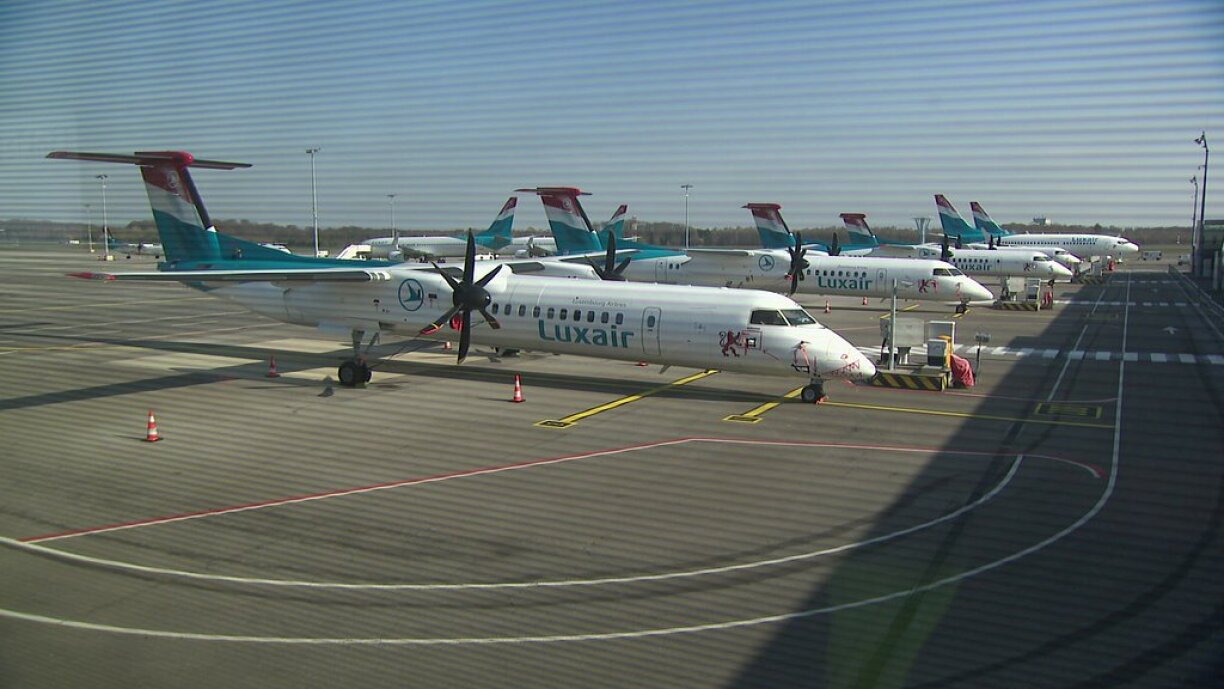
After two long pandemic years, wanderlust was back and activities in the travel sector returned quicker than anticipated. Between March and April alone, passenger numbers increased by 30% while another Covid wave triggered twice as many personnel absences as recorded in 2019.
“First we had Covid, then chaos at many airports in Europe, which also had an impact on us. Still, we managed to fly more passengers than in 2019, so not everything was bad in the end”, noted Luxair CEO Gilles Feith in conversation with RTL.
Last year, the airline transported more than two million passengers, a slight increase compared to 2019. However, this brought staff to their limits and a clash eventually occurred in September 2022.
A tripartite meeting on aviation was organised following pressure from unions, with an estimated 800 Luxair employees having previously voiced their frustrations at a protest in Kirchberg.
“Solutions were to abandon the freezing of wages so that people can continue advancing in their careers, as retained in the collective contract. It was also decided that there is no longer a need for a redundancy programme”, explained Michelle Cloos from the Independent Luxembourg Trade Union Confederation (OGBL).
Looking towards the future, it has become evident that Luxair needs to adapt if it wants to prevail. “We have competition at Findel once again. We have to reinvent and be a quality airline with an entire network of destinations. We will have 90 destinations next year. ... We have to give Luxembourg what it needs: connections with high quality”, commented Feith.
Paul De Araujo from the Luxembourg Confederation of Christian Trade Unions (LCGB) voiced his agreement over the proposed strategy: “New destinations, I think that is the right path forward as it already worked during the pandemic. New destinations will bring additional revenue, which allows to combat low-cost airlines.”
Massive investments into new planes, maintenance, catering, and the modernisation of the cargo centre will be necessary to ensure the long-term future of both airline and acceptable work conditions for staff.
2023 will not be an easy year for Luxair. High inflation means that people already spend less money on travel and the airline still expects their prices to rise over the course of the year.
Feith noted: “Luxair will never be a low-cost airline. That is not possible with our social model. That is why we also have to ensure that the new planes fit into our system.” The airline has four Boeing planes type 737-700, which are not only old, but too small with 141 seats.
Newer and larges planes are expected to be added to the fleet before summer, and negotiations with a manufacturer are currently being finalised, say Luxair officials.
A long-term goal of the airline is to transport passengers beyond the borders of the European continent, including destinations such as Cape Verde, Dubai, and Senegal.
In conversation with RTL, OGBL’s Cloos concluded, “Luxembourg is a growing country with a growing greater region. And Luxair not only flies for residents. Naturally, it is our ambition to make Findel the central hub and Luxair the central provider in the greater region. We therefore hope that the airline grows and creates more job offers so that we have a stable position, even in ten years time.”